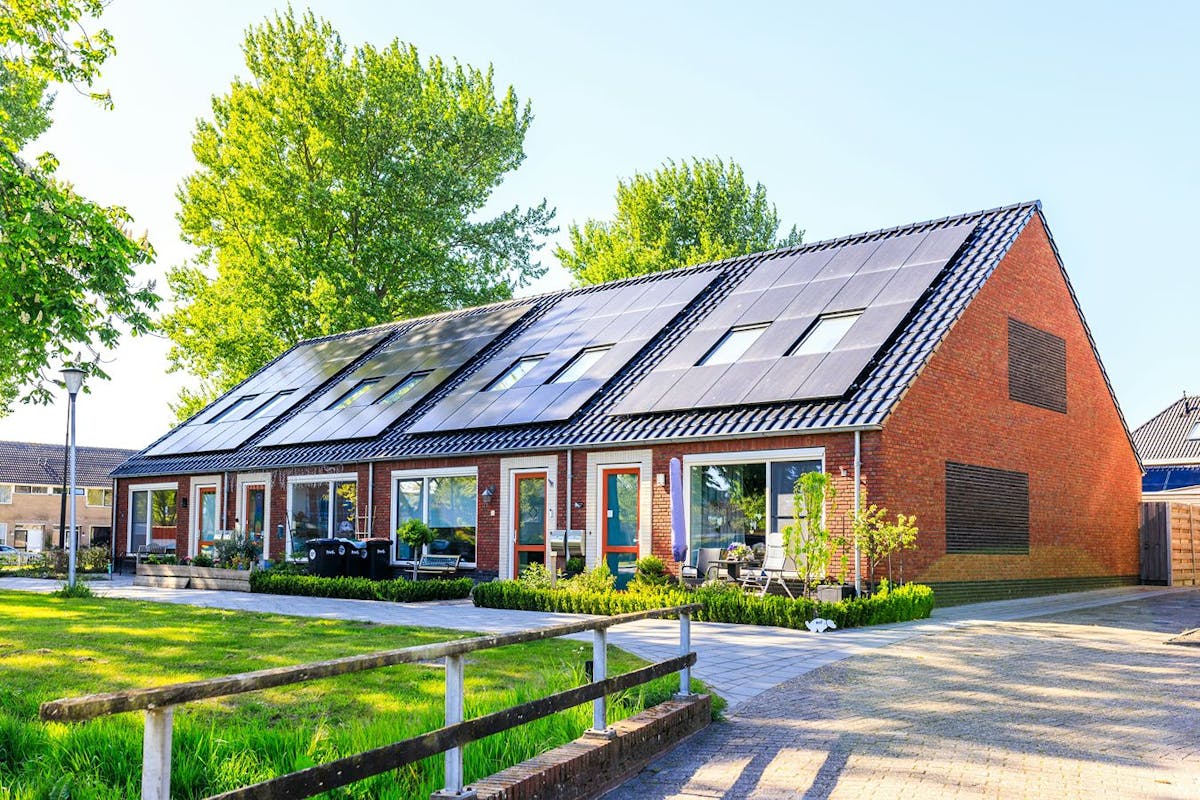Does Seasonality Affect Solar Production and Your Electric Bill?
Last edited
Author
Andrew Giermak
Solar and Electrification Writer and Editor
Editor
Ryan Barnett
SVP, Policy & New Market Development

Is solar power dependable? Yes! But it’s a common question for people thinking about home solar panels for the first time.
Without going too astronomical, sunlight’s strength changes as the seasons change, so solar power generation can change as well. That’s not a problem, though, especially in areas with favorable policies.
Here’s how solar seasonality affects energy production and how your energy bill might change throughout the year.
See how much you can save by going solar with Palmetto
What Is Solar Seasonality?
Solar seasonality refers to the variations in solar energy generation from seasonal patterns in weather and sunlight intensity. Just as you expect different temperatures between spring, summer, fall, and winter, you can also expect different levels of sunlight available for solar power.
How Does the Sun’s Position Affect My Solar Panels?
Solar panel systems are most effective when sunlight is hitting them the most directly, at the most perpendicular angle to the panels. This is from about late morning until mid-afternoon.
That doesn’t mean your solar panels don’t work outside of that peak time frame. It just means the power of the sun's radiation varies, based upon the sun’s brightness, sunlight angles, and the expected position of the sun during seasons or on certain days of the year. As a result, those fluctuations can alter the amount of energy your solar power system can create.
Your solar panels are set at an exact angle when installed on your roof because that angle directly impacts solar panel efficiency. The overall design of your solar system will take the following factors and others into account.
1. The average number of daylight hours
2. The average level of cloud cover
3. Historic precipitation levels
4. The angle of your roof
5. The direction of your roof compared to the sun
When designing solar panel systems, solar installers use sun databases of historical data to determine the expected solar irradiation levels for different geographic regions and adjust your system accordingly.
Average Daily Sunlight Numbers by Season
The position of the sun during each season of the Earth’s orbit is a core aspect of solar seasonality, so it can be useful to know the average peak sun hours for each season.
Peak sun hours is a measure of the sun’s intensity over time in 1,000 watts of sunlight per square meter. If a location, say, your roof, gets 1,000 watts of sunlight in an hour, it is measured as one peak sun hour. If the location gets 500 watts of sunlight an hour for two hours, it’s 1,000 watts total and one peak sun hour.
For example, here are the seasonal averages for the continental United States, courtesy of the National Renewable Energy Laboratory:
| Season | Average peak sun hours |
|---|---|
| Winter | 4-4.5 |
| Spring | 4-5.75 |
| Summer | 6-9 |
| Fall | 4-7 |
Seasonality of Electricity Consumption
In addition to changes in your energy production as a result of seasonality, keep in mind seasonality has an impact on the amount of electricity you consume. During hotter months, you may be running your air conditioning more, and during colder months, your heater use may increase your electricity demands, so your energy needs fluctuate throughout the year.
If you live in an area with net metering, you may be able to offset some of your peak season electricity usage with overproduction during the more temperate months. For example, if you build up net metering credits during the warmer summer months when you’re not using air conditioning, it may help offset some of your electricity use during the colder, darker winter months when you’re using your heater and lights more.

Credit: NREL
Your energy usage can also change depending on who’s in the house, and the summer and winter months have very different energy needs. If you’re away for a week on vacation during the summer months, you’re using little to no electricity, which can help to offset future costs if you earn net metering credits. In the winter months, if you have friends and family visiting for the holidays, you may use more electricity than usual thanks to increased demand on your home’s solar system.
See how much you can save by going solar with Palmetto
Why Does Seasonal Solar Panel Performance Matter to My Utility Bill?
Solar seasonality can significantly influence solar panel efficiency and performance. There is a direct correlation between the amount of sunlight your panels receive, and the amount of electricity they generate.
The winter months have shorter days and less sunlight. The less sunlight your panels receive, the less electricity they will create. The less electricity your panels create, the more electricity you’ll have to use from the electricity grid. And the more electricity you take from the grid, the higher your bill can be.
Even if your solar power system includes enough panels and generation capacity to meet all of your energy needs, that doesn’t mean you’ll always have enough power available every single day. By recognizing the usual differences in solar seasonality, you can anticipate fluctuations in your energy bills better.
How Do Different Weather Conditions Influence Solar Panel Efficiency?
Anything that gets between your solar panels and the sun can affect the amount of solar energy your system generates. This can include clouds, snow and shade. Keep in mind, like you can still get sunburned on an overcast day, your panels will still be generating power during a variety of weather conditions, it’s just the total output that might change. Thus, it’s helpful to dig into the ways weather can affect your solar panels.
Hot climates
Most people think the more sunshine there is, the more electricity solar panels can generate. That’s generally true, but there’s more to consider. Temperature can affect the performance of many electronic devices, including solar panels.
As the temperature increases, panels can create less voltage and become less efficient. Solar panels work best on clear days when the temperature is under 80°F. If it gets hotter, the system’s performance may decrease.

Credit: NREL
Cold climates
Contrary to what you might believe, colder locations are still suitable for solar production. Modern solar panels are more efficient in cooler temperatures between 45-75°F, as long as they have direct sunlight on a clear day.
Rainy seasons
Even on cloudy days, your solar panels are still working. They just aren’t generating electricity at peak efficiency. If the sun is shining in any capacity, diffuse or indirect sunlight will still reach your solar panels and create energy.
Snowy seasons
Solar panels can still produce power, even when covered in a thin layer of snow, as sunlight can still reach solar panels through the snowfall. While it’s good to clean your solar panels when they get dirty, a thin sprinkling of snow will typically melt quickly because of the heat generated by the panels.
While a major snowfall can limit or prevent electricity generation, the angle your panels are installed at, and their slick surface, can help the snow slide off once the sun comes out, and solar users are likely to regain power faster than utility-only power users who lose power in a winter storm.
Solar Seasonality and Solar Panel Performance
Solar panels can be a good investment no matter where you live. However, it’s important to consider how seasonal solar panel performance can impact your electricity bill. Understanding the relationship between solar seasonality and energy generation will help you plan your usage, anticipate when you will need to use the utility grid, and budget for your total energy needs.
To learn more about the right solar power system for your home and saving money by going solar, you can get started today with Palmetto’s free solar savings calculator.
See what solar can do for you:
Frequently Asked Questions
Does battery storage help with changes in solar seasonality?
Battery storage as part of a home solar system can help you manage changes in your power availability and solar seasonality. Battery storage lets you store excess electricity when your system generates it, then use it, instead of utility power, during times of lower solar power generation such as at night or during cloudy weather.
Can I have no electric bill by going solar?
You are unlikely to have no electric bill with home solar power. Utility companies typically still bill you for fees and connection charges. So, even if you have months with no electricity usage from the utility grid or when net metering credits negate the grid power you use, you are likely to have a bill and an amount you owe.


